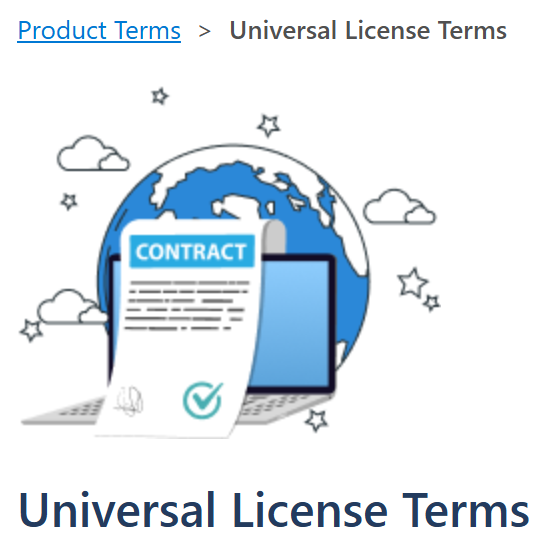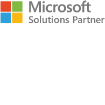Effective July 1, 2025, Microsoft has updated the Universal License Terms for Online Services to clarify the purchasing rules for Cloud Add-ons to Software Assurance (SA). This change refines the interpretation of which Add-ons must be purchased under the same licensing agreement as their base license.

What are the Universal License Terms for Online Services?
The Universal License Terms for Online Services define the general terms and conditions under which Microsoft Online Services are licensed. These terms apply across various licensing programs and agreements, including Enterprise Agreements (EA), Microsoft Customer Agreements (MCA), and Cloud Solution Provider (CSP) programs. They ensure consistency and transparency in how Microsoft Online Services are offered and consumed.
What changed?
Previously, Microsoft’s Online Services Purchasing Rules were interpreted to mean that any Add-on with a prerequisite license (like a base User SL) had to be purchased under the same licensing agreement as that base license.
This has changed now. As of July 1, 2025, Microsoft differentiates between Cloud Add-ons and other Add-ons:
- Only Cloud Add-ons to SA and Step-up licenses now need to be bought under the same agreement as their base license.
- Other Add-ons (that just require a base license but are not tied to SA) can now be purchased under a different agreement.
What is a Cloud Add-on to SA?
A “Cloud Add-on to SA” is an online service (like Microsoft Defender or Intune) that you can add to an existing on-premises license that has active Software Assurance (SA). It is a way to extend your on-premises investment into the cloud.
Example:
| Base License (with active SA) | Cloud Add-on to SA (User SL) | Explanation | Ideal for organization, that |
| Exchange Server Standard CAL | Exchange Online Plan 1 Add-on (User SL) | This Add-on brings cloud-based email (Exchange Online) to users who already have an on-premises Exchange CAL with active SA. |
|
Key Conditions for Cloud Add-ons to SA
To use a Cloud Add-on to SA, you must:
- Have active Software Assurance for the base license.
- Buy one Cloud Add-on per qualifying license.
- Know that the Add-on expires when either the SA or the Add-on term ends.
- Only assign the Add-on to users who have a qualifying license.
What Are Step-up Licenses?
Step-up licenses allow a customer to move from a lower edition of a product to a higher edition without buying a full new license. You only pay the difference in price.
Examples:
- Moving from Microsoft 365 E3 to Microsoft 365 E5 using a Step-up license.
- Upgrading from Power BI Pro to Power BI Premium Per User via Step-up.
These Step-up licenses must be purchased under the same agreement as the original (base) license. So, if your base license is under an Enterprise Agreement (EA), the Step-up must also be under the EA.
What Are Other Add-ons (not tied to SA)?
These are Add-ons that require a base license but are not linked to Software Assurance (SA). They are more flexible under the new rules.
Examples:
- Microsoft Teams Phone Standard Add-on: Requires one of the following licenses prerequisites: Microsoft 365 Business Basic/Business Standard/Business Premium/F1/F3/E3/A3; Microsoft Teams EEA; Microsoft Teams Enterprise; Microsoft Teams Essentials (AAD Identity); Office 365 F3/E1/E3/A1/A3.
- Power Automate Process Mining Add-on: Requires Power Automate Premium per user plan.
- Power BI Premium Add-on: Requires Power Apps, or Power Automate, or specific Office 365/Microsoft 365 licenses, or Dynamics 365.
Under the new rules, these and other Add-ons, not linked to SA, do not need to be purchased under the same agreement as the base license. So, for example, you can have your base license under an Enterprise Agreement (EA) and buy the Add-on under the Cloud Solution Provider (CSP) program.
Conclusion
Previously, Microsoft’s Online Services Purchasing Rules were interpreted to mean that any Add-on with a prerequisite license (such as a base User Subscription License (User SL)) had to be purchased under the same licensing agreement as that base license.
With the updated Universal License Terms, Microsoft has clarified that this requirement applies only to Cloud Add-ons to Software Assurance (SA). These are additional cloud services that are tied to on-premises licenses with active SA. Other Add-ons that simply require a prerequisite license—but are not tied to SA—do not need to be purchased under the same agreement.
This change provides more flexibility across licensing programs, such as Enterprise Agreement (EA) and Cloud Solution Provider (CSP).

If you have any questions concerning Microsoft licensing, talk to your Account Manager Licensing at SCHNEIDER IT MANAGEMENT. We are always here to support you in optimizing your licensing strategy—ensuring compliance, cost-efficiency, and flexibility across all Microsoft agreements.

